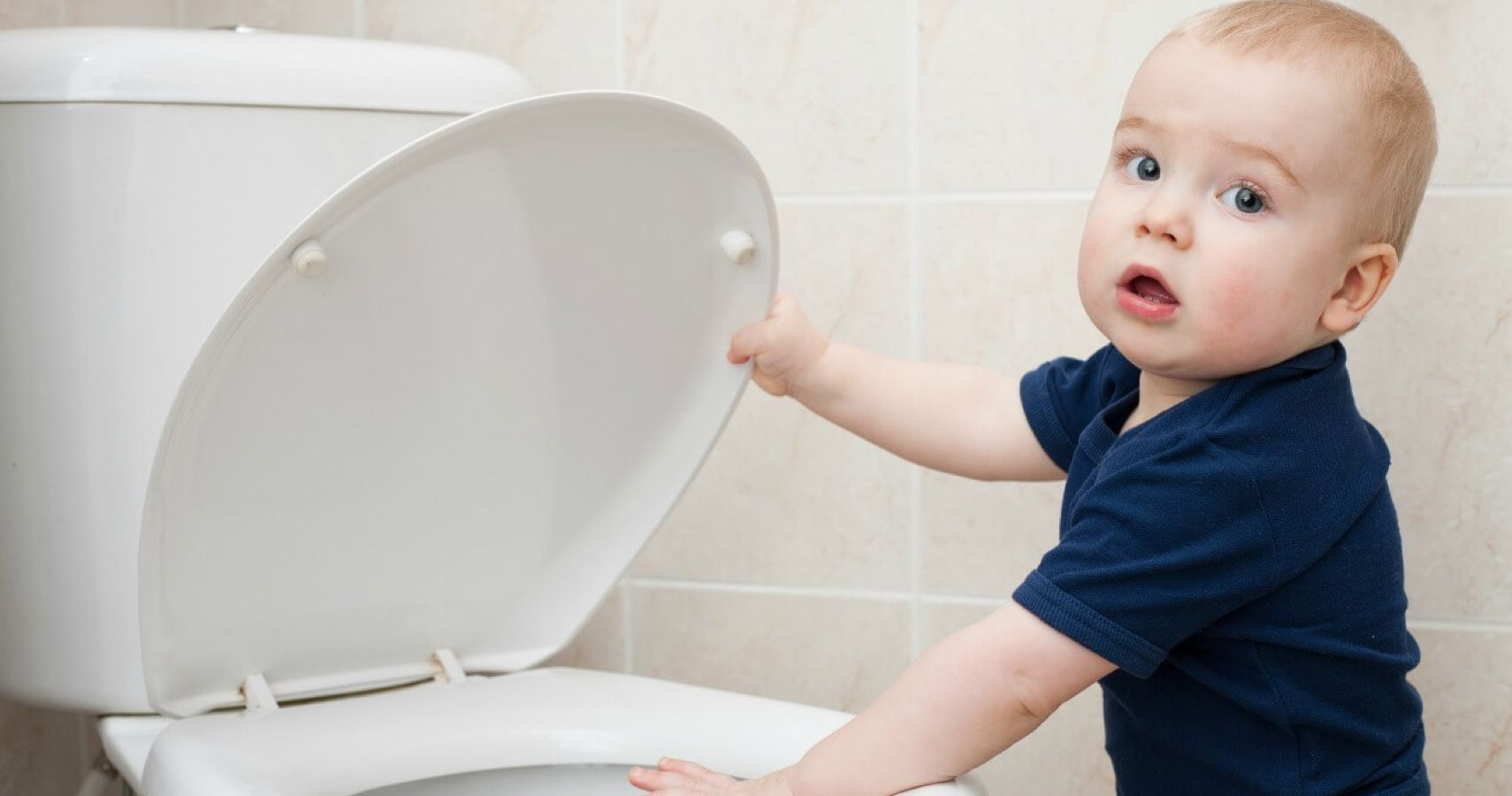We’ve all been trying to find productive ways to entertain and educate our children while staying at home. This is the perfect opportunity to teach them important life skills, and one of them could be potty-training your toddler. However, with toilet paper becoming sparse and rationed by stores, is it really a good idea to start potty-training during the coronavirus pandemic?
Many people would assume that potty-training is worth your time because diapers and wipes are also hot commodities in stores. Numerous parents have said that they have a difficult time finding the right size of diaper and wipes are almost non-existent. We also have been asked to stay home more than normal, which most parents do when they start potty-training anyways.
Here are some things to consider if you're wondering about potty-training your toddler during the COVID-19 outbreak.
RELATED: Mom Of Quintuplets Washed 30 Pairs Of Pants A Day While Her Kids Were Potty Training
Is your toddler interested?
There really is no definite guideline stating when you should start toilet training your toddler. The American Academy of Pediatrics suggests beginning anywhere after 18 months. However, not all 18-month-olds are completely interested in learning how to use the toilet.
You’ll know your toddler is interested when they're curious about the toilet. This could be encouraged by showing them how to sit, flush, and wash their hands. Sitting on the potty can be a little scary at first, so practicing with their clothes on would be a good way to introduce them. You can also help them say the word “potty” so they understand that when they say that word, it means you'll go to the bathroom.
Is your toddler aware of when they need to go?
One tell-tale sign that your toddler is ready to potty-train is when they try to hide what they're doing. If your toddler tries to go behind a couch or into a corner when they need to poop, then they recognize that they need to go before actually doing it. You want to encourage this by explaining what's happening and how to best react to it by heading to the potty.
You can also teach your toddler how to say words like “pee” and “poop” so they can start to tell you when it’s happening. Parents have felt embarrassed by doing this because those words always seem to become a favorite when out in public. Lucky for you, we’ve been asked to avoid being in public for a while, so your child can say those words all they want without other people hearing them.
Does your toddler hate dirty diapers?
As soon as your toddler starts realizing how uncomfortable a dirty diaper is, you can teach them about underwear and that they never have to feel that way again. You can show them what big-kid underwear looks like, or even have them pick it out themselves. The important thing to explain is that big-kid underwear shouldn't get wet or dirty because that’s why you use the potty.
However, some toddlers can be a complete mess and simply not care about it. This is where a lot of parents struggle to keep trying to potty-train through the rough days. Trying to teach a toddler something they don’t care about will just turn into a fight that they will always win.
What is your game plan?
The biggest aspect of potty-training is being consistent. It won’t happen overnight and there will obviously be accidents along the way. But, if you have a plan of action in place, your toddler will have a better chance of success.
RELATED: This Is How Amazon’s Alexa Helped One Mom Potty Train Her Child
You can decide whether you’d like to do some type of reward system or just give praise. A very popular method is to let your child play without pants or underwear on for several hours so that they don't get in the way of going on the toilet. If you don’t want to risk that, you can let them get used to their underwear or have them wear only sweatpants for easy removal. Some have found success by letting their toddler drink as much as they want whenever they want, and then taking them to the potty every hour or so to try and go. This does mean a lot of your day will be spent in the bathroom. But the more your toddler practices, the more confident they’ll become.
All children are different and develop at their own pace. Some may be ready and interested in potty-training way before others, but it could take them longer to actually get the hang of it. If you see that your toddler is ready to start potty-training, there's no reason why you shouldn’t take advantage of this time at home to do so. It'll definitely fill up your day with things to do and create wonderful bonding moments with your toddler.
Sources: AAP, SeattleChildrensHospital

